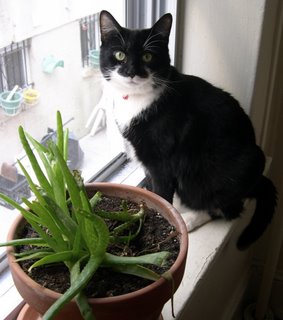Sunchoke (Jerusalem Artichoke) Soup + WCB #42

For some reason, Sunchokes, otherwise known as Jerusalem Artichokes, were all the rage this season. They popped up on menus throughout the New York City area, from soups to sides to salads. I cannot remember how I came to know of them. Once I did, it was an impossibility to find them. I searched everywhere: green markets, my local produce stands, Whole Foods and other organic stores. It seemed that every restaurant had nabbed them up before I could touch them.
I went weekly into certain groceries, asking for sunchokes, more often than not, I was pointed to artichokes. “No! They look like potatoes crossed with gingerroot,” I would lament. But everyone just shrugged. Once I received: “we’ll be getting those in next week.” The next week, I was again pointed to artichokes.
With the sunchoke season quickly coming to a close (the best time to get fresh sunchokes is October through March) I came to accept that I would go through another season without my own bounty. Having stopped my search, low and behold, I finally found them! Doesn’t it always seem true that your desire is fulfilled when you stop searching for it?
I packed them up and brought them home, ready to make a soup as creamy and delicious as a potato soup. So why not use potatoes already? Well, simply put, sunchokes contain more health benefits than potatoes; diabetics often substitute sunchokes for potatoes.
Sunchokes are the root of a plant that resembles a sunflower and the name is derived from the Italian word sunflower: girasole. Sunchokes have a nutty and slightly sweet flavor, allowing them to pair nicely with almost everything from bacon to nutmeg.
Sunchokes store carbohydrates in a form of inulin, a starch that our bodies do not use. Because of this, they are filling, but are not absorbed by our bodies, and show indications of assisting in blood sugar control. Sunchoke flour is also available in some specialty stores, making a good substitute for people allergic to wheat. They are high in iron and potassium and low in fats. Sunchokes also contain a healthy bacteria, lactobacilli , which provide balance in the intestinal track and aid in digestion.
Don’t shy away next time you see this tasty tuber. It is delicious and good for you. If you make it in this soup recipe below, as D will tell you, it is the best soup yet, sweet, creamy and extremely filling on its own-- just don’t tell D you made it unless you want a dinner guest!
SUNCHOKE SOUP
Serving Size= about 12. Active Time= 25 minutes. Inactive Time= 45 minutes.
* 3 ham hocks, have your butcher cut them up
* 8-10 slabs of bacon
* 1-½ lbs sunchokes, scrubbed and cut into 1-inch chunks (no need to peel)
* 1 medium white onion, chopped
* 2 carrots, chopped
* 2 stalks celery + leaves, chopped + extra leaves if you have them
* 10 cups water or leftover vegetable juices
* 2 cups buttermilk
1) Turn the oven to 400F. Place the ham hocks on a roasting pan and place them in the oven while you prepare the soup. In a soup pot on medium-high heat, brown the bacon, about 8 minutes. Once complete, carefully using a paper towel, absorb about half of the bacon fat, leave the rest for the soup.
2) Add onions, carrots and celery. Sauté 8 minutes with the bacon and bacon fat.
3) Remove ham hocks and add them to the pot (turn the oven off). Add sunchokes and water (or vegetable juices). Bring to a boil then cover and reduce heat to medium-low. Cook until sunchokes are soft when pierced with a fork; 30-45 minutes.
4) Remove ham hocks and bacon, set aside to cool. While ham is cooling, carefully in batches, or with a handheld blender, purée the contents of the pot. Add buttermilk; stir.
5) Pick through the ham hocks and remove any meat, throw it back into the soup. Chop the bacon into bite size pieces, return to pot.
6) Garnish with parsley or 1 Tbl buttermilk.
In the non-food world of WCB, Eat Stuff is with us again. Last week Whiskey terrorized the nation. Today, we find sister Kitty BoJangles, avoiding the chaos in her favorite sunny window… caught red-handed eating my Aloe plant!




